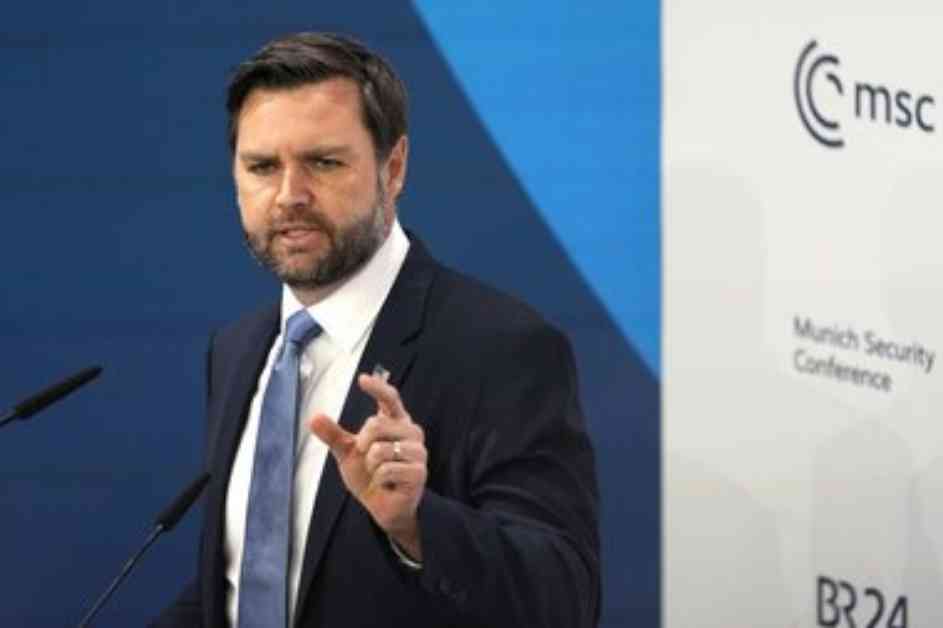Amidst the political landscape of Europe, a meeting between U.S. Vice President JD Vance and Alice Weidel, co-leader of Germany’s far-right party, has stirred controversy and sparked debates surrounding the state of democracy. The encounter took place in Munich, just nine days before a pivotal German election, where Vance emphasized the importance of dismantling perceived “firewalls” against far-right ideologies.
Europe’s Political Divide: The Meeting and Its Aftermath
During the Munich Security Conference, Vance’s poignant remarks highlighted his concerns about the erosion of free speech and democracy across the continent. He expressed apprehension that entrenched interests were stifling alternative viewpoints under the guise of combating misinformation and disinformation. Vance’s passionate plea for upholding the sacred principle that the voice of the people matters resonated with many, drawing attention to the delicate balance between mainstream political ideologies and more extreme factions.
German officials, including Defense Minister Boris Pistorius and Chancellor Olaf Scholz, staunchly defended the country’s mainstream parties, denouncing any comparison to authoritarian regimes. Pistorius’s swift response to Vance’s comments underscored the importance of preserving democracy while safeguarding against extremist influences. He emphasized that every opinion has a place in a democratic society, but that democracy must remain vigilant against those seeking to undermine its core principles.
Global Perspectives: Reactions and Reflections
The fallout from Vance’s meeting with Weidel extended beyond Germany, with Norwegian Prime Minister Jonas Gahr Støre challenging Vance’s stance on irregular migration. Støre pointed out the increasing influx of Ukrainian refugees as a critical issue overlooked in Vance’s discourse, highlighting the complexities of managing border control amidst humanitarian crises. The clash of viewpoints between Vance and European leaders underscored the broader tensions surrounding immigration policy and national sovereignty.
As the political landscape continues to evolve, the intersection of democracy, free speech, and extremism remains a contentious battleground. Vance’s engagement with far-right figures like Weidel and Hungarian Prime Minister Viktor Orbán symbolizes a broader shift in global politics, where traditional alliances are tested against the rise of populist movements. The delicate dance between respecting diverse opinions and safeguarding democratic values poses a significant challenge for leaders navigating these turbulent waters.
In conclusion, the meeting between Vance and Weidel serves as a microcosm of the larger ideological divide shaping contemporary politics in Europe and beyond. As the dust settles on this diplomatic encounter, the echoes of impassioned rhetoric and steadfast defenses reverberate through the halls of power. The lessons learned from this exchange will undoubtedly inform future debates on the role of far-right ideologies in democratic societies, urging leaders to tread carefully as they navigate the complex terrain of political discourse.

